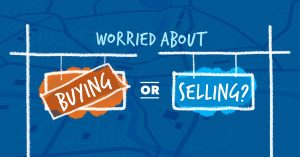While much of a homebuyer’s cost is unavoidable, creative buyers can always find ways to pay a bit less. Any one of these five strategies could reduce your total homeownership costs—including upfront and ongoing expenses—by a substantial amount.
1. Negotiate Closing Costs
Many inexperienced buyers focus on negotiating the purchase price, the most significant number they encounter in the home buying process. However, this isn’t the only number you should pay attention to. Your total out-of-pocket closing costs—also known as “cash to close”—could have a more immediate impact on your finances.
Your total cash to close consists of a dozen or more individual fees that must be settled at closing. Some of these, such as recording and deed fees charged by the local government, are not directly negotiable. Others, such as title insurance and home inspection fees, can be negotiated or at least shopped around for.
However, the most efficient way to reduce your cash to close is to get the seller to agree to cover a portion of it. This might not be possible in supply-constrained seller’s markets, but sellers often have no choice but to agree in more buyer-friendly environments. In a true buyer’s market, it’s possible to get motivated sellers to cover the entire closing balance, which can amount to as much as 5% or 6% of the purchase price.
If you’re not sure how much to ask for, consult your real estate agent (if you’re working with one). They’ll know what’s customary in the current market environment.
2. Shop Around for Mortgage Rates
Due to the Federal Reserve Bank’s ongoing efforts to control inflation, mortgage rates are higher than they’ve been in years. This has the unfortunate side effect of making it much more expensive for homebuyers to finance the purchase of a new home.
Fortunately, while Federal Reserve policy greatly influences mortgage rates’ general levels and direction of change, the bank doesn’t set a single national mortgage rate. Researching and comparing mortgage rates from multiple lenders can help you find a more competitive rate, which could save you a significant amount of money over the life of your loan.
Michael White, co-founder and CEO of Multiply Mortgage, a luxury mortgage broker, suggests that borrowers do their homework on lenders. He says, “If your financial situation is complex or difficult for traditional lenders to understand, consider lenders that can specialize in unconventional assets and income like stock-based compensation. This can often unlock a better interest rate or more purchasing power.”
The bottom line: Not all lenders will be the best fit for you and your situation. Be sure to shop around to ensure you secure the best possible interest rate for your purchase.
3. Consider a Fixer-Upper
If your “must haves” list doesn’t include a turnkey home, consider buying a fixer-upper. This type of house might need a bit—or a lot—of work to become the home of your dreams, but the upside is that you’ll pay less upfront to acquire it. From there, you can work on it at your own pace, as your budget and appetite for disruption allow.
Or, if you’d still prefer a gleaming home but can’t afford to pay a premium for one in your target neighborhood, consider getting all the renovations out of the way before you move in. You can finance this work just as you finance the actual purchase, either with a combined loan or separate purchase and construction loans. As long as you have somewhere to stay in the meantime, the benefit of this approach is that you won’t have to live in an active construction zone.
In either case, there’s another, longer-term benefit of buying a fixer-upper: the opportunity to build equity. Well-executed improvements should increase the home’s value, which you can access through home equity financing or when you sell the property.
4. Explore First-Time Homebuyer Programs
First-time homebuyers are eligible for various federal, state, and local loan and grant programs, as well as other forms of direct and indirect support and assistance. Often, these opportunities target lower-income buyers and those with lower credit scores.
According to Bankrate, “First-time homebuyer programs help make homeownership more affordable for people who haven’t ever owned a home (or haven’t owned a home in some time). These programs come in a variety of flavors, but usually include a mortgage with a better interest rate, lower down payment requirement, and other upsides like down payment and closing costs assistance.”
Some of these programs are administered at the federal level, including the U.S. Department of Housing and Urban Development’s FHA mortgage loan program for lower- and middle-income homebuyers. Most states offer targeted first-time homebuyer assistance, as do many larger municipalities. Some local opportunities can be quite generous, such as down payment assistance programs structured as 0% interest loans or grants that don’t need to be paid back.
If you’re unsure where to start, contact your state or local housing office to learn about opportunities available in your area. Unfortunately, many legitimate homebuyer assistance programs aren’t well-publicized due to a lack of funding for marketing and outreach.
5. Work With a Real Estate Agent
Working with a real estate agent sounds like a guaranteed way to increase your homebuying costs. After all, they need to get paid for their work, and those fees and commissions may end up coming out of your pocket. However, even if you do have to compensate your real estate agent out of pocket, this is likely money well spent.
Working with a knowledgeable, experienced real estate agent ensures you have access to the broadest possible range of listings, including unlisted gems—sometimes called “pocket listings”—that might be known only to your agent and a select few others. Your real estate agent can also serve as an experienced ally while negotiating with the seller, a process that may involve unfamiliar terms and concepts that it pays to understand. A seasoned agent can also help you spot obscure, possibly costly issues before you make an offer on a property, ensuring you’re not locked into a purchase you could regret.
All in all, the right real estate agent can save you far more than they charge for their services.
Maximizing Your Homebuying Savings
Every homebuyer should be aware of the different opportunities available to make a real estate purchase more seamless and affordable. While this list isn’t exhaustive, it is a great starting point for anyone looking to start the home-buying process.
If you begin to feel overwhelmed, remember that you’re not in this alone. Whether you need help from an experienced real estate agent, a friendly mortgage broker, or a local housing program manager whose job is to help you afford the home of your dreams, help is just a call or click away.
Read the full article here










